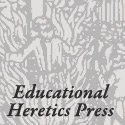Elise Bouldings’s Visions of a Peace-filled World. By Edith W. King, Educational Sociologist
With thanks to Edith for sending us this piece she has written about Elise Boulding a figure who ought to be recognised more widely.
Elise Boulding, who passed away in 2010, should be held in our highest esteem for her vision of a world where all people of all nations abide in peace and security. This has been a utopian goal since biblical times. Elise Boulding held that a culture of peace must be taught and learned. Education for a peaceful world is the direction and content of her many publications for teachers, social workers, and peace activists These groups have been involved in the study of child development on the learning of peaceful living, curriculum development for positive peace, training teachers and creating international schools dedicated to peace education.
Quoting from her Cultures of Peace (2000)
… A peace culture is a culture that promotes peaceable diversity. Such a culture includes lifeways, patterns of belief, values behavior, and accompanying institutional arrangements that promote mutual caring and well-being as well as an equality that includes appreciation of difference, stewardship, and equitable sharing of the earth’s resources among its members and with all living beings. It offers mutual security for humankind in all its diversity through a profound sense of species identity as well as kinship with the living earth. (p.1)
In her efforts for a peaceful world the late Professor Elise Boulding, distinguished sociologist, eminent international educator, celebrated women’s studies scholar and notable futurist, helped shape and define this movement for world peace as an antidote to war. Peace activism, peace research and most recently, peace education have evolved, gaining a growing recognition and importance during the latter part of the 20th century. Particularly after World War I, peace activism and peace research were viewed as a movement for the abolishment of war. Specifically, peace education was considered an ‘arm’ of the peace research movement. In the years following World War II new ideas have expanded the concept of peace research and education for a peaceful world. Elise Boulding’s articles and books of the 1970’s laid the ground work for the movement in classrooms and schools in the 1980’s and ‘90’s for the expanded concept of peace education, conflict resolution, and peace-building.
Elise Boulding, exemplifies those women social scientists whose important, but little recognized work, has made major contributions to the understandings of social systems in a global context. Boulding has drawn strength from the writings, research, and leadership of this group of famous women social scientists such as Margaret Mead. She tells us, in her volume, Cultures of Peace, (2000), that two women particularly have been her mentors: Margaret Mead and Alva Myrdal, women who have had a decided impact on the peace movement. Margaret Mead emphasized that where women’s experiences had traditionally been fenced off from contributing to the high level planning of the world, they can now be used in the attack on such problems as abuse of food, of natural resources, and of the environment.
Elise Boulding was a trend-setter, participating on a worldwide level, seeking the peaceful world community for women, men, and children that has always been so elusive. Over the decades of her remarkable career as a sociologist, international peace activist and women’s studies specialist, Boulding traveled across the United States and around the world again and again, all the while researching, writing and lecturing for the betterment of human beings. Not only was she inspired and mentored by Margaret Mead, Jessie Bernard and Alva Myrdal, she readily attributed much of her career in social science to the stimulation and support of her lifelong partner, her late husband, Kenneth Boulding, the world renowned economist and peace researcher.
In the final chapter of Cultures of Peace, Boulding predicted that in the 21st century pluralism and diversity in the arena of international politics would increase as states adapt to a variety of constitutional arrangements. This would offer greater participation to diverse identity groups in global networks pursuing an unimaginable variety of peaceable human adventures. This sociologist perceived for the future global society the following: a voluntary simplicity movement, a downsizing of the military by nation-states, a movement toward localism with much less personal travel, and a movement to limit the human population. Given the condition of our world today, how prophetic is Elise Boulding’s vision of Planet Earth!
References
Boulding, Elise. Cultures of Peace: The Hidden Side of History. Syracuse, N.Y. Syracuse, University Press, 2000.
Boulding, Elise. Building A Global Civic Culture: Education for an Interdependent World. New York: Teachers college Press, Columbia, 1988.
King, Edith. Meeting The Challenges of Teaching in an Era of Terrorism 2nd edition. Amazon: Kindle, 2009.
King, Edith. Social Thought On Education. Amazon: Kindle, 2011.
Morrison, Mary Lee. Elise Boulding: A Life in the Cause of Peace Jefferson, N.C: McFarlane and Co. 2005.
Weber, B. “Elise Boulding, Sociologist and Leader in Field of Peace Studies” New York Times, July 4, 2010.





Home » Elise Bouldings’s Visions of a Peace-filled World.
Elise Bouldings’s Visions of a Peace-filled World.
Books & Reviews, CPE / PEN News and Comment, E-briefing, Research, Think Pieces and Provocations, Uncategorized · Tagged: Edith King, Elise Boulding, peace
Elise Bouldings’s Visions of a Peace-filled World. By Edith W. King, Educational Sociologist
With thanks to Edith for sending us this piece she has written about Elise Boulding a figure who ought to be recognised more widely.
Elise Boulding, who passed away in 2010, should be held in our highest esteem for her vision of a world where all people of all nations abide in peace and security. This has been a utopian goal since biblical times. Elise Boulding held that a culture of peace must be taught and learned. Education for a peaceful world is the direction and content of her many publications for teachers, social workers, and peace activists These groups have been involved in the study of child development on the learning of peaceful living, curriculum development for positive peace, training teachers and creating international schools dedicated to peace education.
Quoting from her Cultures of Peace (2000)
… A peace culture is a culture that promotes peaceable diversity. Such a culture includes lifeways, patterns of belief, values behavior, and accompanying institutional arrangements that promote mutual caring and well-being as well as an equality that includes appreciation of difference, stewardship, and equitable sharing of the earth’s resources among its members and with all living beings. It offers mutual security for humankind in all its diversity through a profound sense of species identity as well as kinship with the living earth. (p.1)
In her efforts for a peaceful world the late Professor Elise Boulding, distinguished sociologist, eminent international educator, celebrated women’s studies scholar and notable futurist, helped shape and define this movement for world peace as an antidote to war. Peace activism, peace research and most recently, peace education have evolved, gaining a growing recognition and importance during the latter part of the 20th century. Particularly after World War I, peace activism and peace research were viewed as a movement for the abolishment of war. Specifically, peace education was considered an ‘arm’ of the peace research movement. In the years following World War II new ideas have expanded the concept of peace research and education for a peaceful world. Elise Boulding’s articles and books of the 1970’s laid the ground work for the movement in classrooms and schools in the 1980’s and ‘90’s for the expanded concept of peace education, conflict resolution, and peace-building.
Elise Boulding, exemplifies those women social scientists whose important, but little recognized work, has made major contributions to the understandings of social systems in a global context. Boulding has drawn strength from the writings, research, and leadership of this group of famous women social scientists such as Margaret Mead. She tells us, in her volume, Cultures of Peace, (2000), that two women particularly have been her mentors: Margaret Mead and Alva Myrdal, women who have had a decided impact on the peace movement. Margaret Mead emphasized that where women’s experiences had traditionally been fenced off from contributing to the high level planning of the world, they can now be used in the attack on such problems as abuse of food, of natural resources, and of the environment.
Elise Boulding was a trend-setter, participating on a worldwide level, seeking the peaceful world community for women, men, and children that has always been so elusive. Over the decades of her remarkable career as a sociologist, international peace activist and women’s studies specialist, Boulding traveled across the United States and around the world again and again, all the while researching, writing and lecturing for the betterment of human beings. Not only was she inspired and mentored by Margaret Mead, Jessie Bernard and Alva Myrdal, she readily attributed much of her career in social science to the stimulation and support of her lifelong partner, her late husband, Kenneth Boulding, the world renowned economist and peace researcher.
In the final chapter of Cultures of Peace, Boulding predicted that in the 21st century pluralism and diversity in the arena of international politics would increase as states adapt to a variety of constitutional arrangements. This would offer greater participation to diverse identity groups in global networks pursuing an unimaginable variety of peaceable human adventures. This sociologist perceived for the future global society the following: a voluntary simplicity movement, a downsizing of the military by nation-states, a movement toward localism with much less personal travel, and a movement to limit the human population. Given the condition of our world today, how prophetic is Elise Boulding’s vision of Planet Earth!
References
Boulding, Elise. Cultures of Peace: The Hidden Side of History. Syracuse, N.Y. Syracuse, University Press, 2000.
Boulding, Elise. Building A Global Civic Culture: Education for an Interdependent World. New York: Teachers college Press, Columbia, 1988.
King, Edith. Meeting The Challenges of Teaching in an Era of Terrorism 2nd edition. Amazon: Kindle, 2009.
King, Edith. Social Thought On Education. Amazon: Kindle, 2011.
Morrison, Mary Lee. Elise Boulding: A Life in the Cause of Peace Jefferson, N.C: McFarlane and Co. 2005.
Weber, B. “Elise Boulding, Sociologist and Leader in Field of Peace Studies” New York Times, July 4, 2010.
share:
About the author
Related Posts
Centre for Personalised Education Fact Sheet: ‘What should I do if my child’s other parent doesn’t want me to home educate him?
Centre for Personalised Education Fact Sheet: 'What should I do if my child's other parent doesn't want me
Home Education – Frequently Asked Questions. Centre for Personalised Education Advice.
Home Education - Frequently Asked Questions.
Centre for Personalised Education Advice.
Home
Centre for Personalised Education eNews 12th June 2019
Get the latest eNews from the Centre for Personalised Education here:
Centre for Personalised Education eNews
DfE Consultation on ‘Children not in School’ Centre for Personalised Education Response
The DfE Consultation on Children not in School Closes 24 June 2019.
This is
CPE Communications June 2019